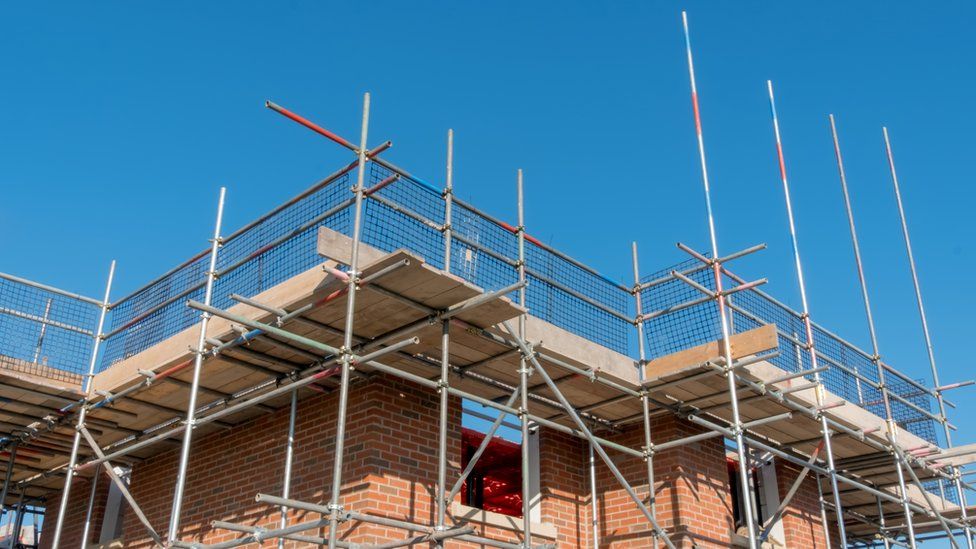
But the new Levelling Up and Regeneration Bill, published on Wednesday, scraps controversial proposals to make it harder to block development, after a Tory backlash.
Conservative MPs feared the plans cost them votes in crucial by-elections.
A source said Levelling Up Secretary Michael Gove had listened to concerns.
It is understood a proposal for a zonal system will be dropped – which would would have seen certain areas earmarked for housing growth and some development applications automatically approved.
Ministers are also expected to confirm that legally-binding housing targets are being scrapped.
Instead, Mr Gove will promise communities control over what is happening in their area, with measures such as “street votes” allowing them to decide whether new extensions and other developments can go ahead,
Housing is a key challenge for the government, which pledged to build 300,000 houses a year by the mid-2020s. Sources say that target remains.
Making it easier to approve developments was a key part of its initial strategy after Boris Johnson won the general election in 2019.
The original plan would have seen local councils in England having to classify all land in their area as either “protected”, for “renewal”, or for “growth”.
Councils would then have had to look favourably on developments in “renewal” areas, whilst in “growth” zones, applications conforming to pre-agreed local plans would automatically gain initial approval.
Ministers also wanted to introduce binding local quotas.
But the plans sparked a significant Tory backlash – with some in the party saying the policy had contributed to by-election losses in former Conservative heartlands.
Those fears would only have been exacerbated by last week’s local elections results.
Design codes and levy
The government believes its new plans will give communities more of an opportunity to shape what happens in their area – and stronger grounds to resist unwanted developments.
Under Mr Gove’s plans, communities will be able to hold votes on whether planning permission should be granted for extensions to existing homes on their street.
But Labour MP Clive Betts, chair of the levelling up, housing and communities select committee, called the move a “gimmick”. He told the BBC it was “never going to be possible” for communities to “decide absolutely everything” about urban planning in their area.
Mr Betts said the process of building new housing should be simplified, with locals involved in decisions about where homes might be placed much earlier than at the planning permission stage.
Ministers are planning design codes, which would see local communities set rules about the layout of new developments and materials which could be used.
And they hope a new infrastructure levy – to be determined locally – will increase funds for projects such as schools, hospitals and roads by basing the sum on the value of the property when it is sold, rather than when it gets planning permission.
The planning system will also be digitised, making plans more accessible online.
Ministers want to modernise the system, which often sees notices on lamp posts to alert people to local proposals.






